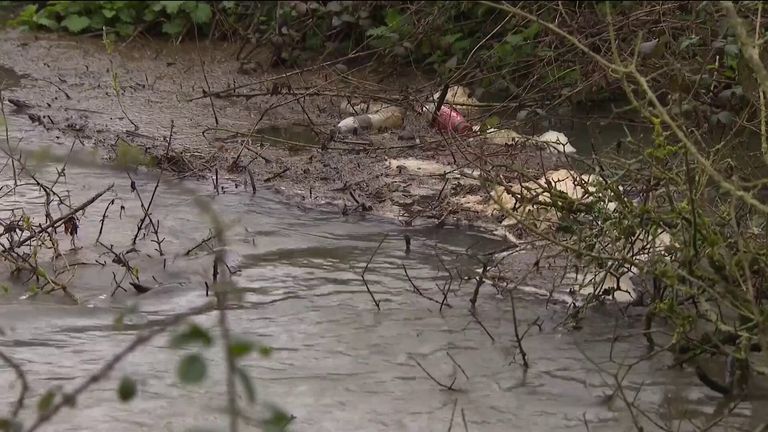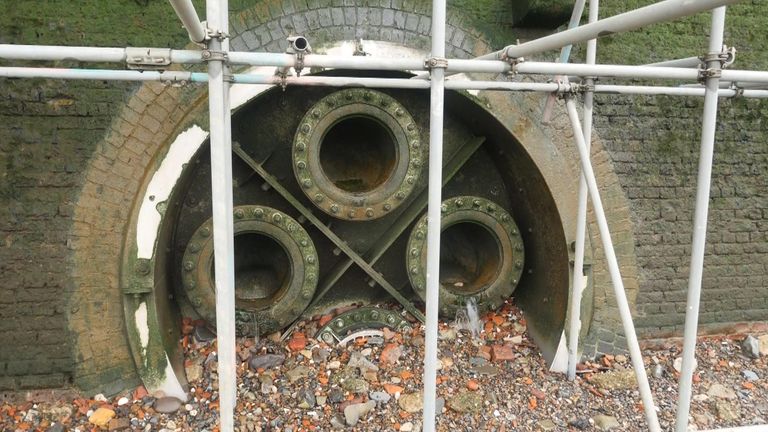Water firms seek £156 rise in annual bills to tackle shortages and sewage spills

[ad_1]
Water companies are making their case for a hike to annual household bills of up to £156 in the second half of the decade, to tackle challenges including shortages and sewage leaks.
Industry body Water UK said the firms’ business plans, which have to be signed off by the regulator Ofwat, would see investment almost double from current levels to £96bn between 2025 and 2030.
The proposals are aimed at bolstering resilience in the water system amid public anger over the release of raw sewage into rivers and the sea.
A failure to tackle leaks in the pipe network and hosepipe bans are among other frustrations.
As a result, firms have faced a backlash over historic shareholder dividends – seen by critics as rewards for failure given the scale of the problems facing the sector.
Water UK said the plans would pay for 10 new reservoirs, cut leaks and stop the equivalent of 6,800 Olympic swimming pools-worth of sewage spills.
It said the scale of the work meant that the average bill in England was expected to be £7 per month higher by 2025, rising to £13 by 2030.
That sum is equivalent to £156 more per year.
Water UK said that firms recognised that such an increase would be punitive for many already struggling with cost of living pressures.
It said they were planning to more than double the number of households eligible for financial support, rising to 3.2 million from two million currently.
David Henderson, chief executive of Water UK, added: “These record-breaking investment proposals will secure our water supply as we deal with a changing climate and a growing population.
“While increasing bills is never welcome, this investment in our country’s infrastructure is essential to ensure the security of our water supply.
“Water companies are seeking regulatory approval to reduce overflow spills into rivers and seas as fast as possible and to doubling the number of households receiving support to pay their bills.
“Ofwat now needs to back these plans that are both ambitious and vital.
“Approving the plans is necessary so that we can provide the highest quality drinking water for a growing population, ensure the security of our water supply in the future and reduce the use of storm overflows as much as possible.”
Ofwat, which has faced stinging criticism for its regulation of water firms, is due to set out its decision on the business plans before the end of next year.
Read more:
Watchdog finds sewage overflow failures may have broken environmental law
Why is sewage being pumped into rivers and the sea?
Its chief executive, David Black, responded: “Company business plans are an important first step in the price review process.
“Ofwat’s role is to forensically scrutinise their proposals, to ensure any increase in bills is justified, efficient and delivers significant improvements in river and bathing water quality.
“We will assess how companies are helping customers to afford any bill increase.”
Environment Secretary Therese Coffey said that while major improvements were required, customers should not pay the price for poor performance.
“Funding this transformation requires making decisions for the long term, and water companies will carry out the largest ever environmental investment programme in water company history, investing billions in new reservoirs for new homes, businesses and for our farmers, as well as the £60bn plan to tackle sewage spills.”
[ad_2]

